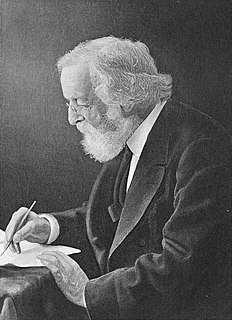A Quote by James A. Garfield
For honest merit to succeed amid the tricks and intrigues which are now so lamentably common, I know is difficult; but the honor of success is increased by the obstacles which are to be surmounted. Let me triumph as a man or not at all.
Related Quotes
Amid the moon and the stars, amid the clouds of the night, amid the hills which bordered on the sky with their magnificent silhouette of pointed cedars, amid the speckled patches of the moon, amid the temple buildings that emerged sparkling white out of the surrounding darkness - amid all this, I was intoxicated by the pellucid beauty of Uiko's treachery.
The real wonder is that so many difficulties should have been surmounted [in the federal convention], and surmounted with a unanimity almost as unprecedented as it must have been unexpected. It is impossible for any man of candor to reflect on this circumstance without partaking of the astonishment. It is impossible for the man of pious reflection not to perceive in it a finger of that Almighty hand which has been so frequently and signally extended to our relief in the critical stages of the revolution.
The path of success in business is invariably the path of common-sense. Nothwithstanding all that is said about "lucky hits," the best kind of success in every man's life is not that which comes by accident. The only "good time coming" we are justified in hoping for is that which we are capable of making for ourselves.
The obstacles to peace are in the minds and hearts of men.
In the study of matter we can be honest, impartial, true. That is why we succeed in dealing with it. But about the things we care for — which are ourselves, our desires and lusts, our patriotisms and hates — we find a harder test of thinking straight and truly. Yet there is the greater need. Only by intellectual rectitude and in that field shall we be saved. There is no refuge but in truth, in human intelligence, in the unconquerable mind of man.
Most of our platitudes notwithstanding, self-deception remains the most difficult deception. The tricks that work on others count for nothing in that very well-lit back alley where one keeps assignation with oneself: no winning smiles will do here, no prettily drawn lists of good intentions. One shuffles flashily but in vain through one's marked cards- the kindness done for the wrong reason, the apparent triumph which involved no real effort, the seemingly heroic act into which one had been shamed.
Our age is one in which usefulness is thought to be the chief merit of nature; in which the attainment of power, the utilization of its resources is taken to be the chief purpose of man in God's creation. Man has indeed become primarily a tool-making animal, and the world is now a gigantic tool box for the satisfaction of his needs.
































